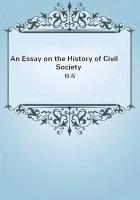Mrs Jarley's wrath on first learning that she had been threatened with the indignity of Stocks and Penance, passed all description.
The genuine and only Jarley exposed to public scorn, jeered by children, and flouted by beadles! The delight of the Nobility and Gentry shorn of a bonnet which a Lady Mayoress might have sighed to wear, and arrayed in a white sheet as a spectacle of mortification and humility! And Miss Monflathers, the audacious creature who presumed, even in the dimmest and remotest distance of her imagination, to conjure up the degrading picture, 'I am a'most inclined,' said Mrs Jarley, bursting with the fulness of her anger and the weakness of her means of revenge, 'to turn atheist when Ithink of it!'
But instead of adopting this course of retaliation, Mrs Jarley, on second thoughts, brought out the suspicious bottle, and ordering glasses to be set forth upon her favourite drum, and sinking into a chair behind it, called her satellites about her, and to them several times recounted, word for word, the affronts she had received.This done, she begged them in a kind of deep despair to drink; then laughed, then cried, then took a little sip herself, then laughed and cried again, and took a little more; and so, by degrees, the worthy lady went on, increasing in smiles and decreasing in tears, until at last she could not laugh enough at Miss Monflathers, who, from being an object of dire vexation, became one of sheer ridicule and absurdity.
'For which of us is best off, I wonder,' quoth Mrs Jarley, 'she or me! It's only talking, when all is said and done, and if she talks of me in the stocks, why I can talk of her in the stocks, which is a good deal funnier if we come to that.Lord, what does it matter, after all!'
Having arrived at this comfortable frame of mind (to which she had been greatly assisted by certain short interjectional remarks of the philosophical George), Mrs Jarley consoled Nell with many kind words, and requested as a personal favour that whenever she thought of Miss Monflathers, she would do nothing else but laugh at her, all the days of her life.
So ended Mrs Jarley's wrath, which subsided long before the going down of the sun.Nell's anxieties, however, were of a deeper kind, and the checks they imposed upon her cheerfulness were not so easily removed.
That evening, as she had dreaded, her grandfather stole away, and did not come back until the night was far spent.Worn out as she was, and fatigued in mind and body, she sat up alone, counting the minutes, until he returned--penniless, broken-spirited, and wretched, but still hotly bent upon his infatuation.
'Get me money,' he said wildly, as they parted for the night.'Imust have money, Nell.It shall be paid thee back with gallant interest one day, but all the money that comes into thy hands, must be mine--not for myself, but to use for thee.Remember, Nell, to use for thee!'
What could the child do with the knowledge she had, but give him every penny that came into her hands, lest he should be tempted on to rob their benefactress? If she told the truth (so thought the child) he would be treated as a madman; if she did not supply him with money, he would supply himself; supplying him, she fed the fire that burnt him up, and put him perhaps beyond recovery.
Distracted by these thoughts, borne down by the weight of the sorrow which she dared not tell, tortured by a crowd of apprehensions whenever the old man was absent, and dreading alike his stay and his return, the colour forsook her cheek, her eye grew dim, and her heart was oppressed and heavy.All her old sorrows had come back upon her, augmented by new fears and doubts; by day they were ever present to her mind; by night they hovered round her pillow, and haunted her in dreams.
It was natural that, in the midst of her affliction, she should often revert to that sweet young lady of whom she had only caught a hasty glance, but whose sympathy, expressed in one slight brief action, dwelt in her memory like the kindnesses of years.She would often think, if she had such a friend as that to whom to tell her griefs, how much lighter her heart would be--that if she were but free to hear that voice, she would be happier.Then she would wish that she were something better, that she were not quite so poor and humble, that she dared address her without fearing a repulse; and then feel that there was an immeasurable distance between them, and have no hope that the young lady thought of her any more.
It was now holiday-time at the schools, and the young ladies had gone home, and Miss Monflathers was reported to be flourishing in London, and damaging the hearts of middle-aged gentlemen, but nobody said anything about Miss Edwards, whether she had gone home, or whether she had any home to go to, whether she was still at the school, or anything about her.But one evening, as Nell was returning from a lonely walk, she happened to pass the inn where the stage-coaches stopped, just as one drove up, and there was the beautiful girl she so well remembered, pressing forward to embrace a young child whom they were helping down from the roof.
Well, this was her sister, her little sister, much younger than Nell, whom she had not seen (so the story went afterwards) for five years, and to bring whom to that place on a short visit, she had been saving her poor means all that time.Nell felt as if her heart would break when she saw them meet.They went a little apart from the knot of people who had congregated about the coach, and fell upon each other's neck, and sobbed, and wept with joy.Their plain and ****** dress, the distance which the child had come alone, their agitation and delight, and the tears they shed, would have told their history by themselves.















